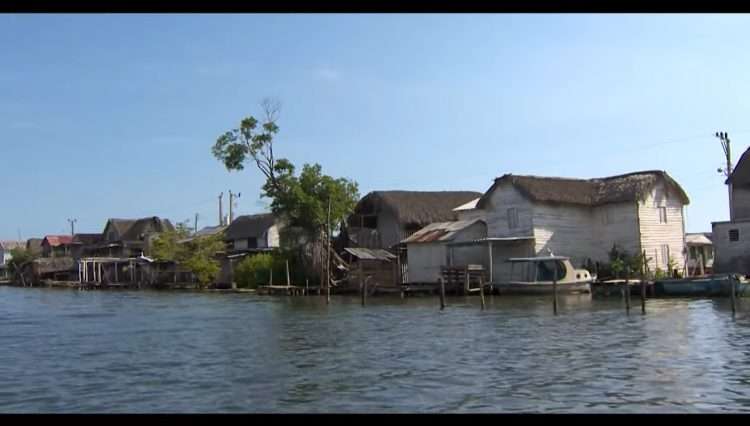As an island in the Caribbean, Cuba is especially exposed to global warming, but it has a 100-year plan to deal with it, explains the documentary Cuba’s Life Task: Confronting Climate Change.
This audiovisual review of Cuba’s efforts in the face of the great global challenge of the 21st century premiered at the last climate summit, COP26, and now arrives in public screenings from different continents and through the internet.
“Tarea Vida (name of the Cuban plan against climate change) is not just another law, it is a new development paradigm,” says Helen Yaffe, producer of the documentary and professor of economic and social history at the University of Glasgow (UK), in an interview with EFE.
Yaffe, specialized in Cuban economic development, explains that Cuba is responsible for barely 0.08% of global polluting emissions, but that — due to its location and geography — its inhabitants are especially exposed to climate change.
In recent years, hurricanes have increased in number and strength, temperatures have risen by one degree, swings between highs and lows have flattened, and rainfall has been reduced.
A “complete transition” is taking place from a humid tropical climate to a sub-humid tropical climate, the adviser to the Ministry of Science, Technology and Environment (CITMA), Orlando Rey Santos, summarizes in the documentary.
Then there is the problem of deforestation: the colonial system and the bet on sugar cane reduced the forested area from the pre-colonial 95% to 14% in 1959, according to the book De la selva a los campos de caña (From rainforest to cane field) by Cuban historian Reinaldo Funes. Currently, according to CITMA figures, it is around 30%.
In addition, the sea level is rising, which affects the environment, the economy and the settlements on the coast. The Cuban government estimates that it will be necessary to relocate more than a million people, 9% of the country’s population.
The documentary, in which representatives of the Cuban government appear almost exclusively, offers an eminently positive view of the Tarea Vida program and does not include voices from environmental groups.
A “UNIQUE” PROGRAM
Faced with the risks of climate change, Cuba has launched a hundred-year program, the only one of its kind in the world, emphasized Yaffe, author of the book We are Cuba! about the survival of the country’s communist system after the collapse of the Soviet bloc.
“Cuba has a long-term state response that combines the adoption of science in laws, natural and national solutions, and community participation,” she explained.
She highlights, first of all, that the government has “absolute confidence” in science, which is included in its legislation and that the country has “incredible scientific capacity,” as it has also shown by developing three COVID-19 vaccines.
Secondly, she points out that, since Cuba “practically cannot access” international financing, it has resorted to “national solutions” instead of waiting for external funds, either from the UN green fund or from multilateral banks.
“The Cuban approach can be relevant to the rest of the Caribbean and other countries, especially now that many are in debt,” she said.
The third point is community participation and the decentralization of the initiative, which Yaffe contrasts with plans in the West, proposed from above and guided by profit, while young people protest in the streets and demand more ambitious action.
After the “disappointment” that COP26 has meant, there is expectation in the face of “an alternative response to an existential threat,” said the producer. In fact, she adds, the documentary is having an “incredible reception,” from Australia to Latin America.
Yaffe warns against those who initially disdain the Cuban government’s response to climate change “for political reasons” and asks that the plan be judged by its effectiveness. She pointed out that this does not happen with other countries also questioned for their actions in the area of human rights.










